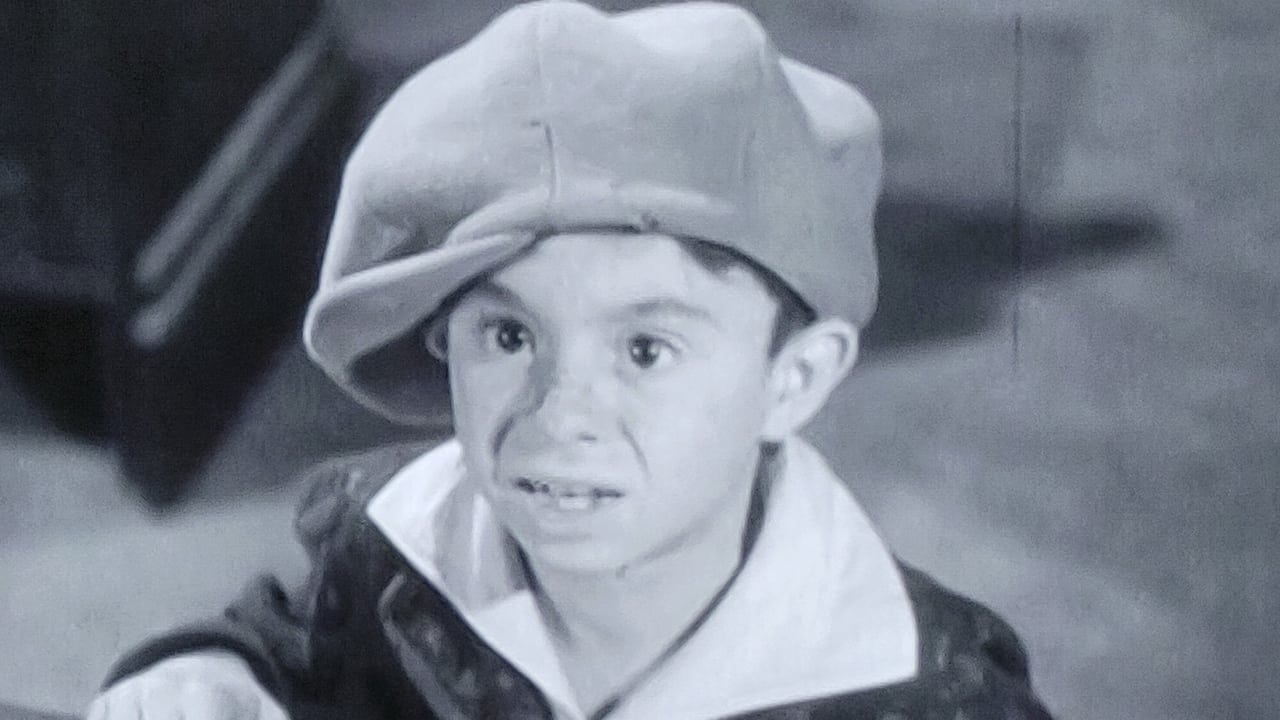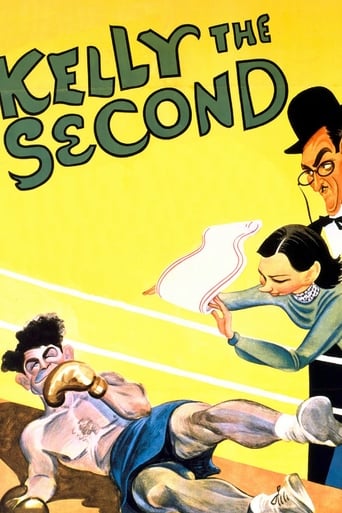

It is interesting even when nothing much happens, which is for most of its 3-hour running time. Read full review
... View MoreClose shines in drama with strong language, adult themes.
... View MoreA clunky actioner with a handful of cool moments.
... View MoreOne of the most extraordinary films you will see this year. Take that as you want.
... View MoreThis picture was shown on TCM recently and it is strictly for hard-core Patsy Kelly fans. Apparently it was a vehicle for her in hopes it would lead to a series of films, according to Maltin.But Patsy Kelly is an acquired taste and this film did her no favors. The humor is extremely broad and the storyline is vapid. The climax has to be seen to be believed and is far removed from true comedy. The one bright light is the inimitable Charley Chase who injects as much fun as he can into the proceedings and which sorely needs his expertise.Can't really recommend this one except for the historical value via a glimpse of some of '30's Hollywood's great extras and character actors. A rainy day movie - but it is only 70 minutes long and doesn't kill enough bad weather time.
... View MorePatsy Kelly and Guinn Williams prove to be a funny and romantic team in their own way Kelly The Second. The title refers not to any order of birth, but the fact that Patsy acts as Big Boy Williams's second in his boxing career.I liked Williams playing a lovable lunkhead of a truckdriver who will goodnaturedly brawl on a given occasion. One such brawl damages pharmacist Charley Chase's establishment so that Chase is owing money big time. It's Kelly who gets the idea to turn Williams's talent for brawling into his becoming a prizefighter.Of course gamblers Harold Huber and Edward Brophy get involved as well as blond golddigger Pert Kelton. The heavyweight championship fight with Williams against Maxie Rosenbloom is something hilarious and pure Hal Roach.The gimmick at the end is that Williams goes into the ring thoroughly soused to the gills. But another thing that audiences today can't appreciate is Maxie Rosenbloom who two years earlier lost the world light heavyweight title after a five year reign. Rosenbloom's nickname as a fighter was 'Slapsie Maxie' because of his tendency to almost paw at his opponent. He was a tough man in the ring, but he rarely knocked out any opponent because of that. Fight fans in 1936 would know that and realize that Williams in his condition might fare better against a Rosenbloom than say Joe Louis. The final scene of course is Williams becoming the heavyweight champion, but the fight itself with a drunk Big Boy in the ring with Slapsie Maxie is hysterical. And of course the help he gets from Patsy and in fact the whole audience really make Big Boy, the People's Champion.
... View MoreThis is a very odd film in that I mildly enjoyed it but found almost no laughs whatsoever in this Hal Roach comedy! Despite having Patsy Kelly and Charlie Chase, the movie looked like a light drama--and putting the laughs in the script was just forgotten. It is a pleasant enough film--just not funny. And, I doubt if Roach would have been happy with me saying this if he were alive today because it WAS intended as a comedy.Part of the reason I was not terribly impressed by the film is that I am really not a huge fan of Patsy Kelly, as she always seems to be screaming her lines--subtle she sure ain't. Interestingly enough, and this is NOT meant at all to be a criticism, but Rosie O'Donnell is almost the spitting image of her.I was also disappointed because I LOVE Charlie Chase's silent films, but found at least in the case of this film, he doesn't make a good transition to sound--as the entire chemistry that made him famous is gone. He does play a fine supporting character--but he's nothing like the character he was in silent days, that's all.As for the plot and the other actors, they were fine though not outstanding. It almost seemed like in every way, Roach was using his B or C-string unit to make this film--saving his better stuff and energy for Laurel and Hardy and Our Gang. Speaking of Our Gang, look carefully for a very young and cute scene with Alfalfa--in his pre-Our Gang days.NOTE: Patsy Kelly's car at the beginning of the film appears to be the same one used for a comedy bit in the Laurel and Hardy short, OUR WIFE.
... View MoreIn 'Kelly the Second', Patsy Kelly meets an Irish lorry-driver who rejoices in the name Cecil Callahan, and she trains him to become a prizefighter. This is a Hal Roach feature, so its production budget is at the bottom of the barrel. You might expect all parties concerned to set their sights on appropriately modest goals. Hell, no! Patsy trains Cecil to be the heavyweight champion of the *world*, and before the end of the film he gets a crack at the championship. But we know in advance that we're not going to see a realistic depiction of a heavyweight title bout on screen, because this movie's budget won't stretch that far.Cecil is played by Guinn Williams, a fine character actor whose immense size typecast him as hulking thugs of less intellect than the hero. I'll admit that my interest in Guinn (real name Gwynn) Williams isn't entirely objective: my own name, Gwynplaine, is occasionally mistaken (usually by Americans) for a female name: I wish that Guinn Williams - a huge, macho actor - were better known, so that the gender of my own name would be a bit less cryptic to some people. Personal motives aside, Guinn Williams was a talented and versatile actor (within his physical range) who never got the lead roles he deserved. Williams spent most of his career playing the roles turned down by Nat Pendleton.There are funny performances in 'Kelly the Second' by Edward Brophy and Billy Gilbert. Pert Kelton is vulgar (as usual), but brunette Rosina Lawrence is winsome and pleasant. Slapsie Maxie Rosenbloom (whose acting talents were underrated) is effective and funny as a rival pugilist. Charley Chase was already well into his dipso decline at this point; Hal Roach seems to have stuck him into this film simply because Chase was available and under contract. I'll rate 'Kelly the Second' 3 points out of 10.
... View More